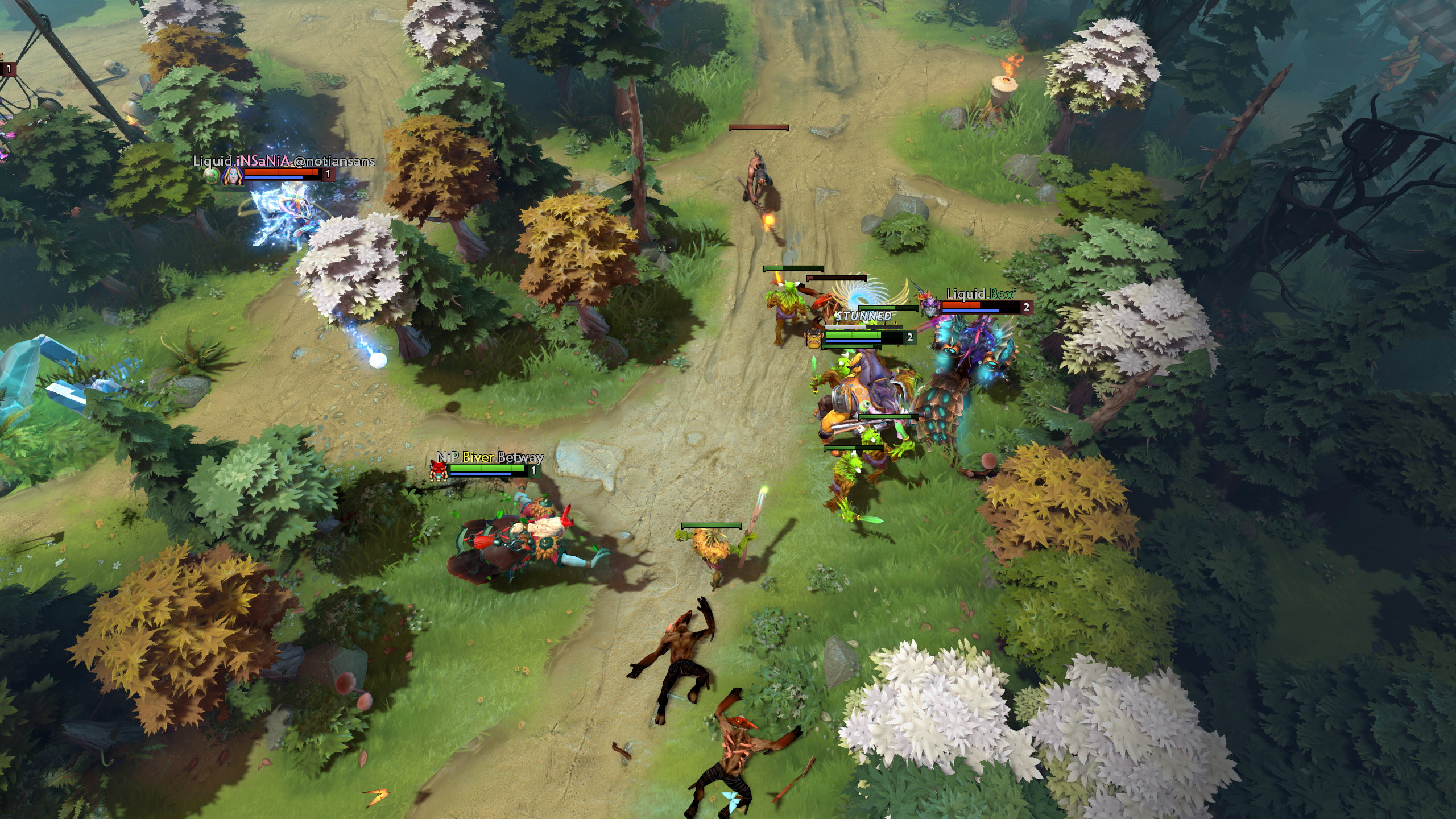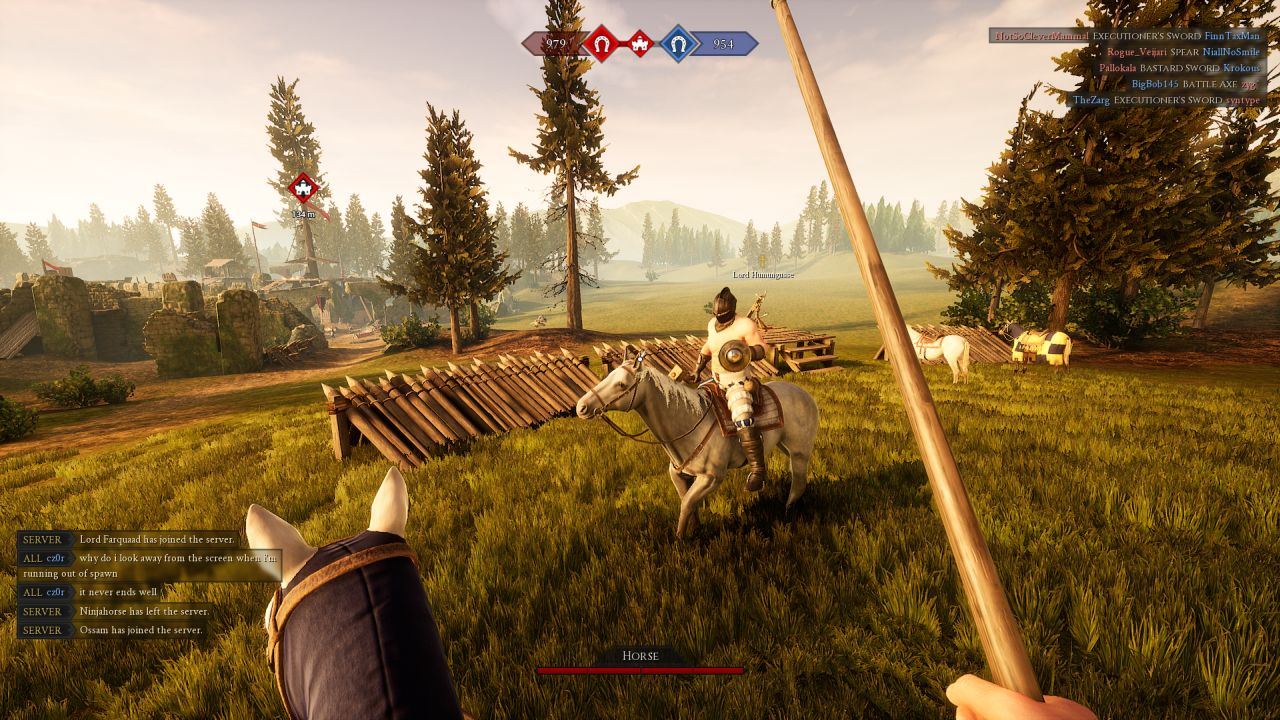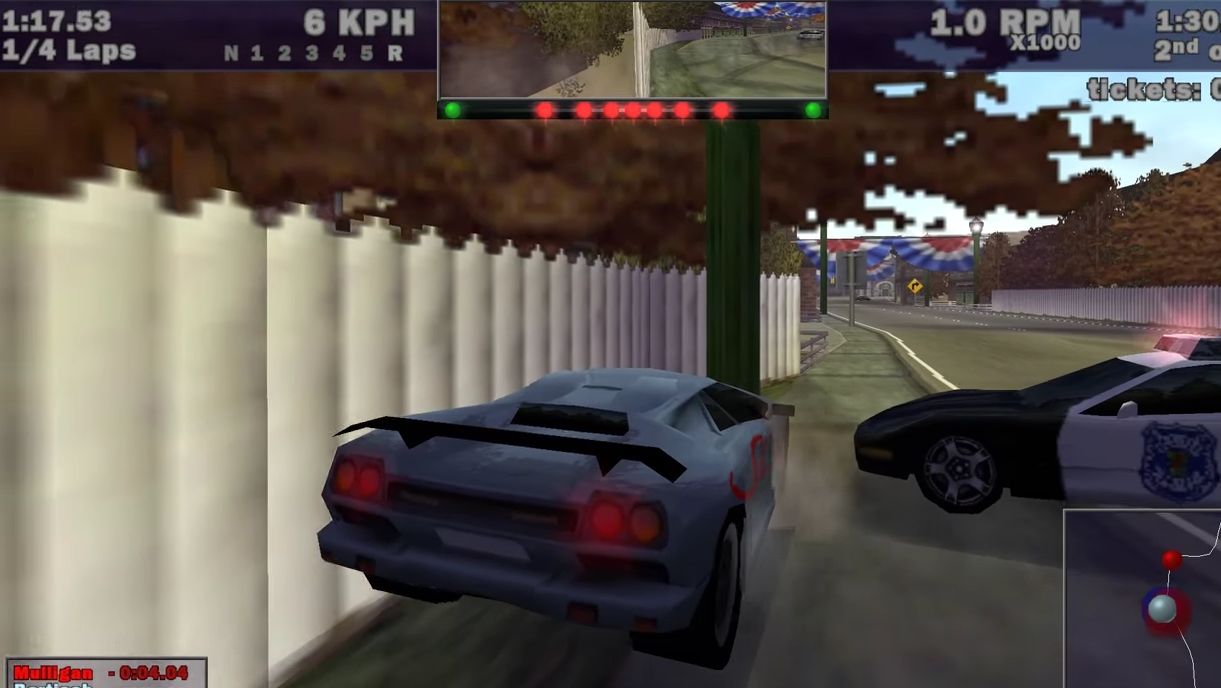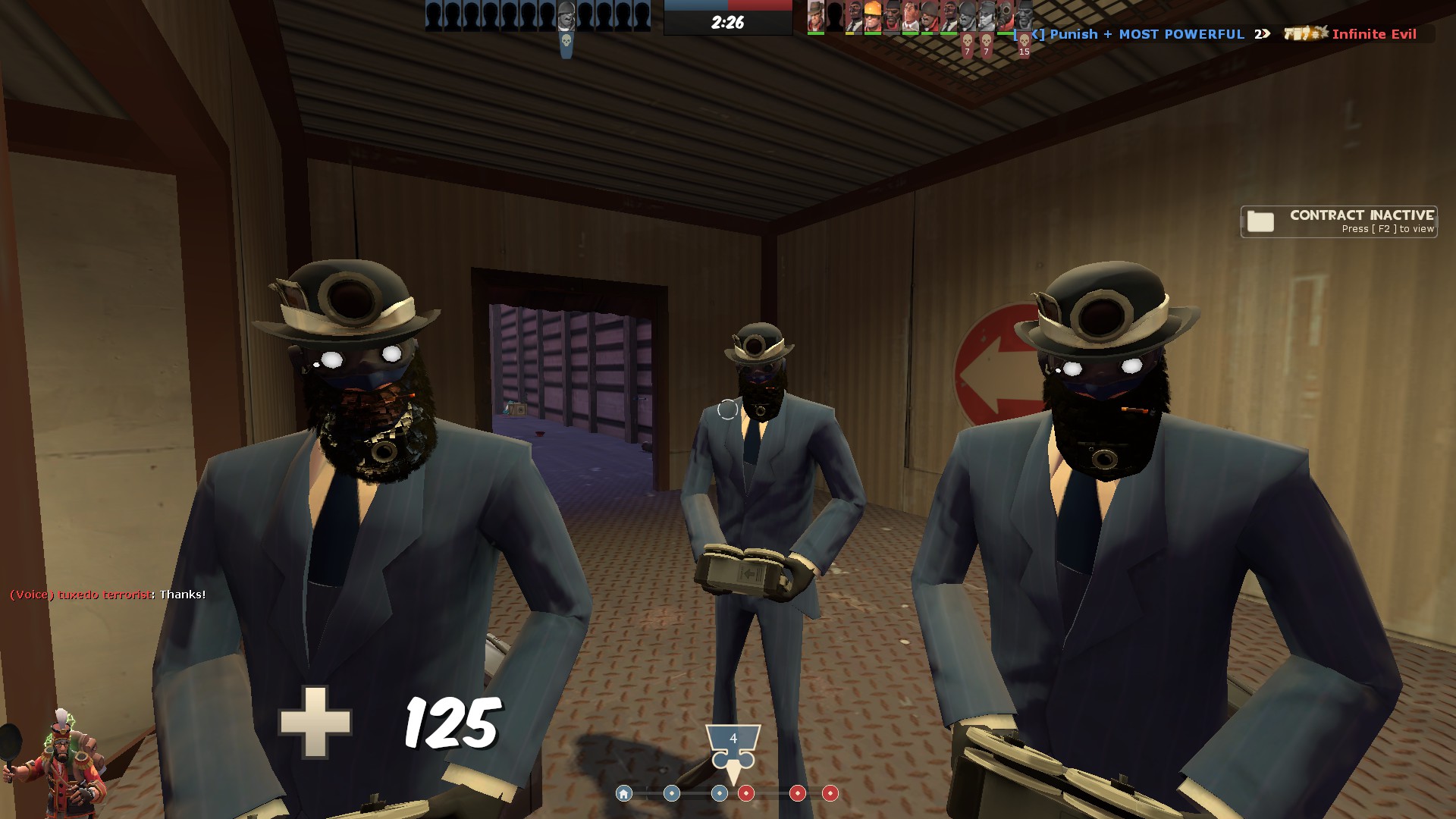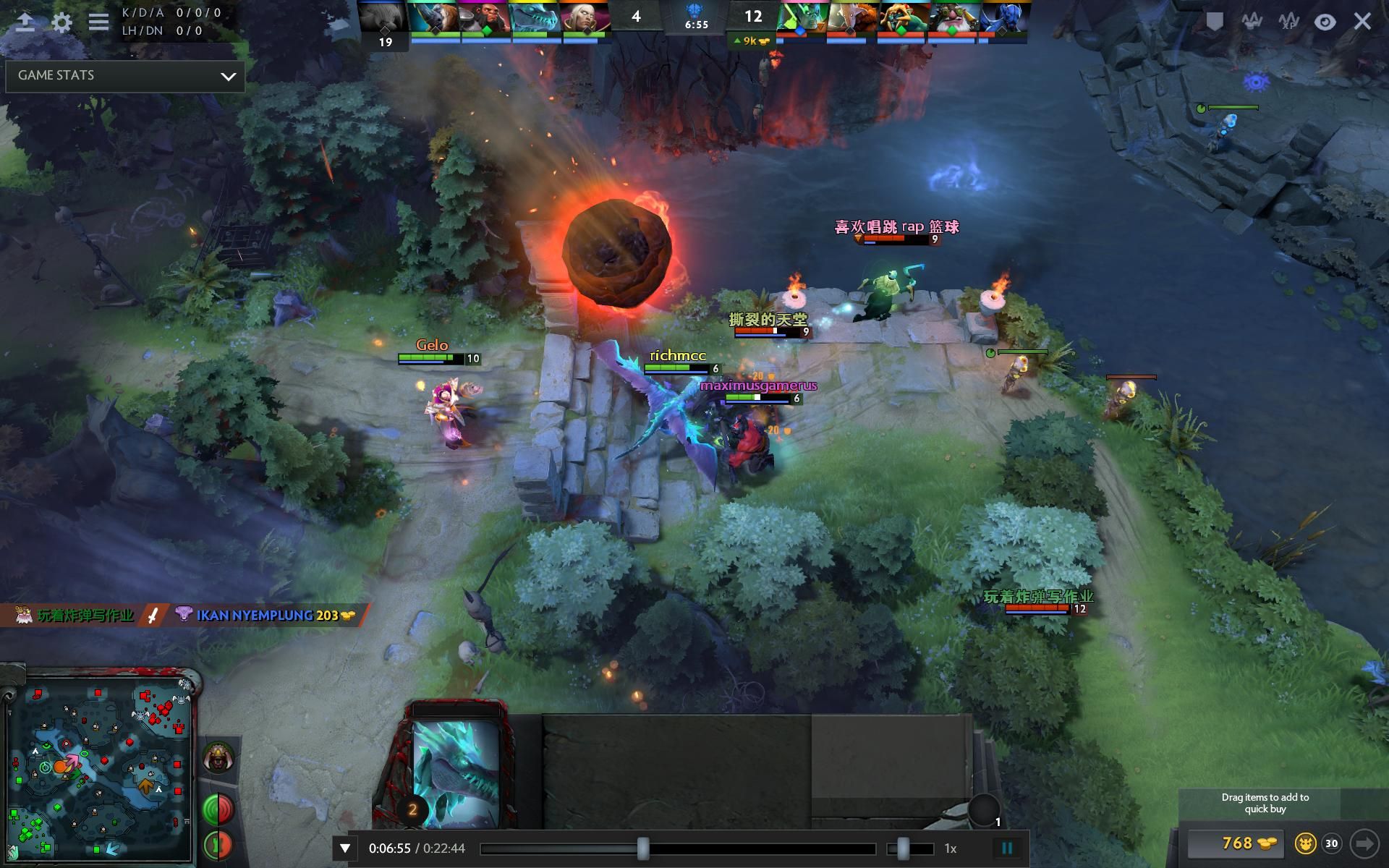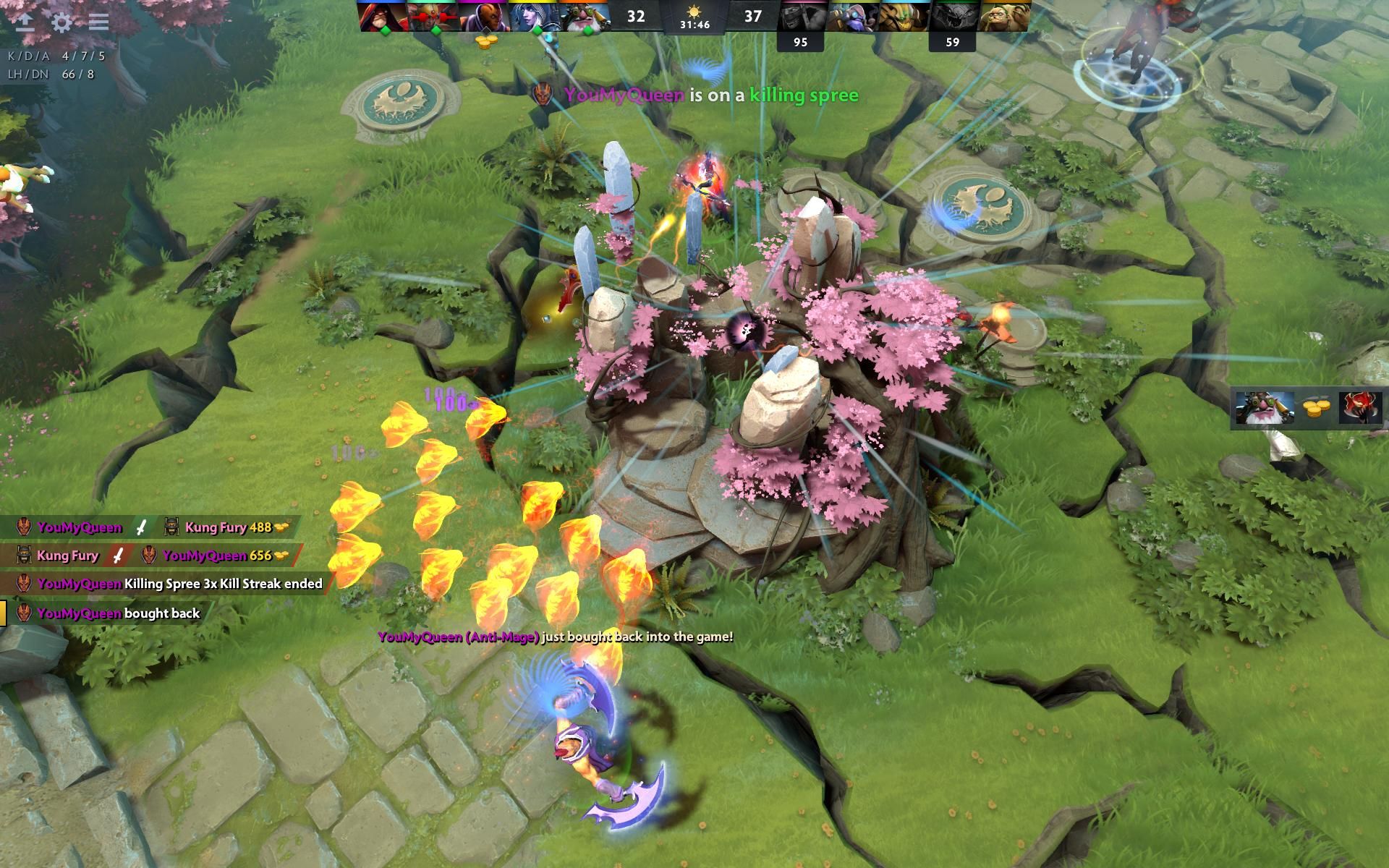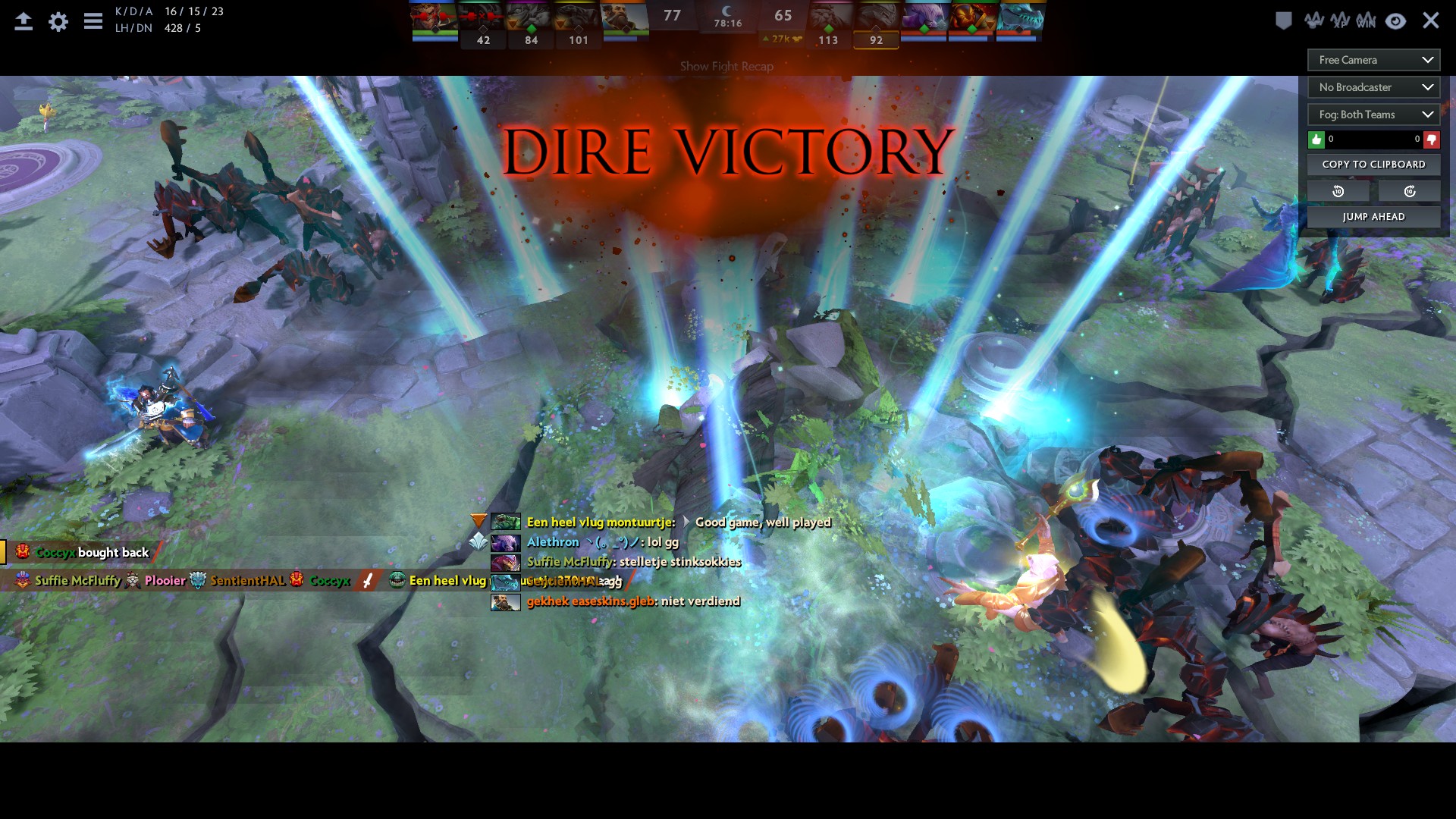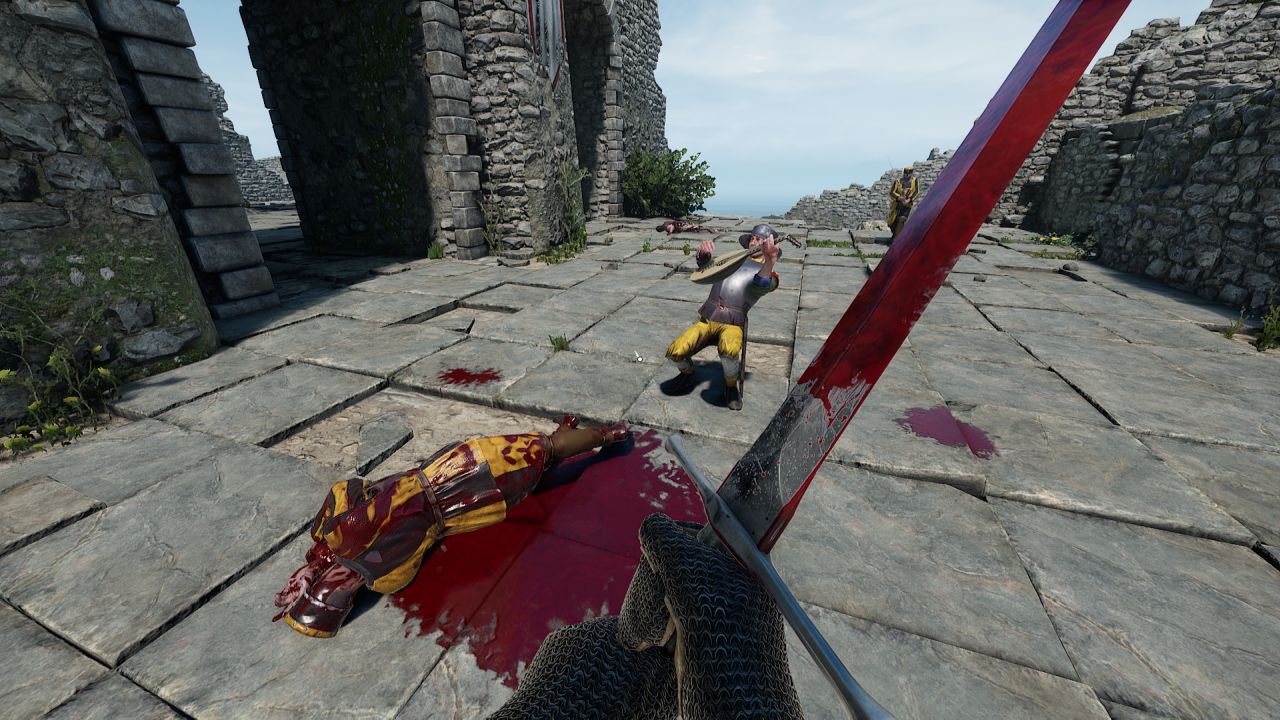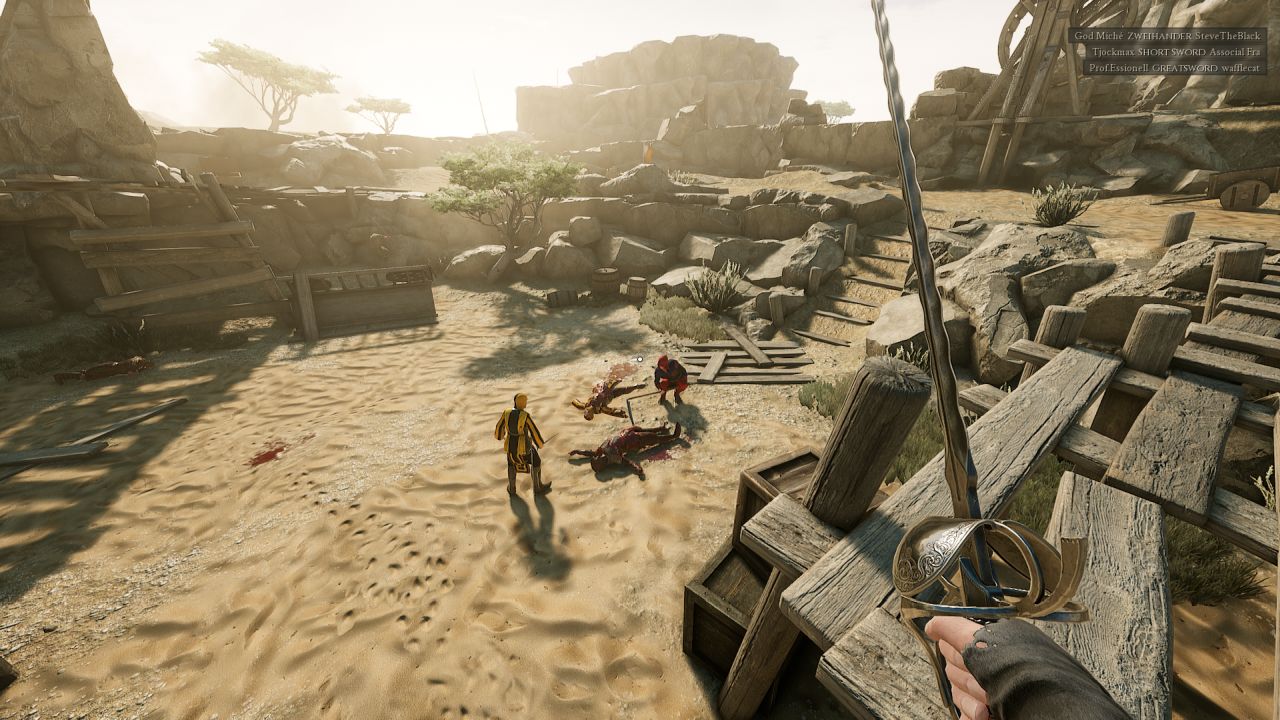Competition is wild, joyous and fulfilling - except when it isn't
Don't race ahead
I've always been drawn to competitive videogames. It's not hard to see why. They're the best kind. Competition can be exciting, rich, varied. It gets you interacting with people, pitting your abilities against thinking, improvising, engaged and pivotally human opponents. A competitive context can be both a wonderful generator of interesting decisions, and a platform for genuine connection. I believe in and value these things wholeheartedly, because I've extensive experience with both.
I also believe competition has a dark side. It can be the kindling to incendiary ego, stoking a way of looking at the world that leads to, or is at least bound up with, insecurity and distress. I've experienced this, too.
Let's start with me thrashing my Dad at Need For Speed 2.
It must have been electric, at first. I might have been seven or eight, and at this early point I’d bumbled about with Lego Racers and long-forgotten edutainment games, but Need For Speed was my first proper introduction to a competitive arena. Unless you count tag, and the like, but human exhaustion makes tag and the like self-balancing. They don't let kids get too full of themselves.
Back then my only opponent was my Dad, and there was a brief time when we were evenly matched. That can’t have lasted long, because in truth I don’t remember that phase at all. I mainly just remember the two of us growing exhausted at his incompetence, where to avoid lapping him I’d frequently have to park and wait up. This was a doomed attempt to keep things sporting, and a recurrent problem with whatever we played. Digitally, at least. We did go on to play an awful lot of chess.
Chess is a useful segue, because it helps me establish that my competitive urges were never the preserve of the digital, and because it demonstrates an early shift to the kind of competition I now revel in. Racing is well and good, but it's about precision rather than anticipation. You exist on the same track, but in isolation. You might as well race ghosts.
Chess is different. Chess is about pitting your mind against another's, about wriggling into their ideas in order to develop your own. It gets you thinking about how your thinking changes your opponent's line of thought. That's the real hook. That mental dance, alive with all the obstacles a human can imagine, rather than the unlife of a system. It wasn't enough to outperform - I needed to out-think.
I was around ten the first time I beat my Dad at chess without a handicap, and it was vaguely around then that he imparted a few words of wisdom. "It's a sad truth about the world,'' he said, "that no matter how good you are at something, there's always going to be someone who's better." I tried to take this truth to heart, while also relishing any opportunity to prove that on a smaller scale, as a videogame-playing schoolbound teenager, I jolly well could be the best, thank you very much. To a large extent this turned out to be possible, and this has since given me no end of trouble.
Skip ahead a few years, and I'm playing obscene amounts of Team Fortress 2. Naturally, mostly as the Spy. A chess player plonked amongst gunmen, with a disguise kit and an insta-killing knife. I couldn't shoot for toffee, but I could act. It often didn't take much to trick people.
Most people could be fooled by simply slapping on a disguise and backpeddling while shouting for a medic. People saw what they expected to, until I buried a knife in their behind. There was definitely subtlety to it, mind. Different classes carry different expectations, and learning to play as them helped me learn how to pretend. I backstabbed my way to the top of every scoreboard, delighting in every deceit. 'Fooled you. Nuh-nuh.'
At this point I made no attempt to disentangle the pleasure of success from the pleasure of the process. I never tried to isolate what parts of that pleasure were harmless, even constructive, and what parts were bound up in assuaging a growing insecurity that I wasn't good enough. In my defense, I had very little idea this was happening, though it seems fairly obvious to me in the current moment. Somewhere along the line I'd internalised a conflation between not good enough and not better than.
Absurdly, after a hundred hours of TF2 I realised I'd been playing wrong. Or rather, limitedly. While I'd been toying with the toolkit Valve designed, others had been exploiting the one they'd created accidentally. A YouTuber called "Stabby" introduced me to 'trickstabs'. It was possible, it turned out, to exploit terrain and player movement to land backstabs on people as they chased you.
Cornerstabs were the easiest. FPS players all take corners the same way, covering the shortest possible distance - and leaving their backs exposed to anyone who can lurk with spot-on timing. Stairs, too, could be turned into deathtraps. I practiced for hours, until I could leap over people's heads and knife them in a heartbeat. Videogames haven't really got any better than that. None have handed me a role revolving around misdirection, with a fallback of dexterous skullduggery.
I’ve always felt most at home in those arenas. Where mind games meet reaction speeds, and cerebral thought is entwined with real-time instinct. I relished the immediacy, the way picking through a backline could capture my attention absolutely.
Beyond that, I relished provoking people. TF2 has a domination system, where if the same person kills you multiple times in a row the whole server gets told about it. The victims see an icon above the head of their oppressor, reminding them of their own humiliation and inferiority. Nowadays that system seems like an obviously bad idea, one that Overwatch has admirably moved away from by not even displaying other people's deaths or kill counts. To a cocky teenager, it was catnip.
The best people to bully were those who'd call me names in chat, then rage at their teammates for not spy-checking. You didn't have to feel guilty about upsetting those kinds of people. I'd make a point of hunting them down, sacrificing more strategically important targets because I found that personal reaction far more validating. Playing was best when it became a performance, me at its centre, unambiguously better than.
Then along came Dota 2.
Dota is dazzling in its complexity. You can play for a thousand hours and still be considered new. There are over a hundred heroes, five times as many spells, dozens upon dozens of items and map nuances and arcane interactions between them all. Absorbing this information is merely the first hurdle. Applying it involves distilling all these considerations into what your wizard should be doing and when - and that’s just the broader, undulating sea of factors that shape macro-level strategy. Fighting is a world of its own, where speed, timing, precision and coordination are all pivotal.
Ah, coordination. It’s telling that I can happily and honestly cite that as a treasured skill, but I’ve always gravitated to the roles in team games that operate largely independently. In Dota I played mid, the role that always gets a lane to itself and, played correctly and aggressively, gets to hog most of the attention. It’s all embarrassingly literal.
Nothing enables showboating like playing mid in Dota 2. I liked 'snowball' heroes best. These revolved around doing well in the early game then doubling down on their advantage, never leaving the enemy a chance to find their feet. They thrived in the same situations I did, reflecting and entrenching my own all or nothing attitude.
I was adept at pushing my limits, at creating situations I could just barely survive - often because my opponents would misread their advantage and become overconfident. I realise now that this kind of trap-laying is central to the kinds of competition I particularly like. I'm most alive when I'm inspiring misplaced confidence, dancing on the precipice of survival in order to trick people into underestimating me.
It would be a long time before I recognised that, like all showoffs, I was compensating for my insecurities. Videogames were one avenue for this, but competitiveness had worked its way into my every moment. I’d poke and sneer at all the many things I considered stupid, undermining them at every opportunity. Unfortunately, part of this habit endures.
There are certainly perspectives I no longer dismiss out of hand, despite my instinct to. But I still search for ways and measures by which I can be superior, not realising in the moment that this makes me less. The problem isn't that competitive games, or competition generally, ignited this attitude. It's the way competition endorses it. If you let them, competitive environments can reinforce a kind of crumbling, self-centred fortress of misdirected energy, piling block upon block onto precarious foundations.
We all seek to be valuable, and games can provide easy external criteria (kills, captures, victories) that meet and strengthen this need in a largely superficial way. This can in turn nurture a different, more insidious and often unnoticed internal criteria. The kind of competitive games I like best, the ones that deal in trickery, exemplify this second type. They provide some measure of how smart you are in direct comparison to another person, the type of smartness that translates most readily into 'getting the better of'. This pleasure feeds off dubious ideas about how effective a measure of smartness this is, but it makes a more fundamental mistake about the importance of measuring a quality like smartness in the first place. It's self-defeating.
Pursuing personal glory is a terrible idea, and egos can be awfully sticky. Doing something with the purpose of 'being seen to be good' begs the question of where the value in your pursuit actually lies. Being smart might always be good, but being smarter is only of worth in a competition. Not everything is a competition.
I've chewed through far too many words to veer off into talking about how much of this dissonance can be traced back to an education system designed to indoctrinate students into a world of false meritocracy, and how we're brought up to constantly compare ourselves to others despite nearly everyone knowing this is not a wise thing to do. So let's talk instead, briefly, about Mordhau.
Nowadays, I find the appeal of any competitive game is rooted in how earnestly it makes me scream 'if only I'd done something else'. With shooters, this often boils down to 'if only I'd shot faster and with better accuracy'. That kind of obstacle can only be overcome with practice, with noticeable results off on a depressingly distant horizon. Mordhau's medieval brawling subverts this, because the reason for my death is always apparent and alterable. 'If only I'd ducked', I can say, or 'if only I hadn't fallen for that feint'. Nearly every failure feels like it was my fault.
In some ways, I've identified nothing new. I'm still placing value in my performance as it relates to others. But I think the emphasis on this thought, a self-directed one, enables a different interpretation: the goal isn't to be better than anyone other than my past self. In this light, the fact that this revolves around going head to head with another person becomes almost incidental. I'm valuing my opponents for the challenge they provide, not for the opportunity to assert myself as superior. Or maybe I'm just making it easier to tell myself that.
The problem with my Dad's comment about the sadness wrapped up in the implausibility of being 'the best' is that an inability to be the best isn't really sad at all. I suspect the value within being 'better' rather than being 'good' doesn't exist, and if it does, then it's a hollow, slippery thing. Earning admiration for achievement feels nice, for a time, but it's a warm parasite hatching ever-hungry copies of itself, all clinging to the more fruitful value that lies within improving at something you enjoy. External validation needs to be kept in check, because it can easily outgrow its bounds.
The next step along this road would be to say that the presence of self-improvement in the context of a game isn't even important, and what matters is the pursuit of it. A goal can be necessary for the shape it provides, and valuable regardless of whether it is ultimately fulfilled. I won't take that step, though, because it doesn't strike me as entirely true. I know part of the reason I play Mordhau almost every night is because I'm good at it, and there's a joy inherent to exercising skill. That joy is enhanced when skill is exercised over others, but it's corrupted, too. Humans make for more interesting adversaries than any AI, but competition invites adversarial thinking. This is its essence, its allure, and its greatest pitfall.
I'm not going to stop playing competitive multiplayer games anytime soon, but I'm glad to have put some thought into why. Competitive games can take you to the edge of your abilities, thanks to all the humans who are ready and willing to do the same. It's fun to play out there, to see what you can do. Just not when you're oriented around the performance others see.


